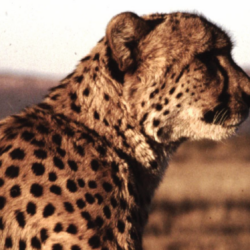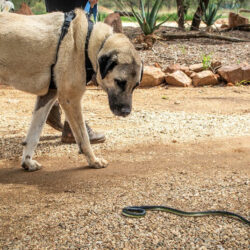2018 Indianapolis Prize
-
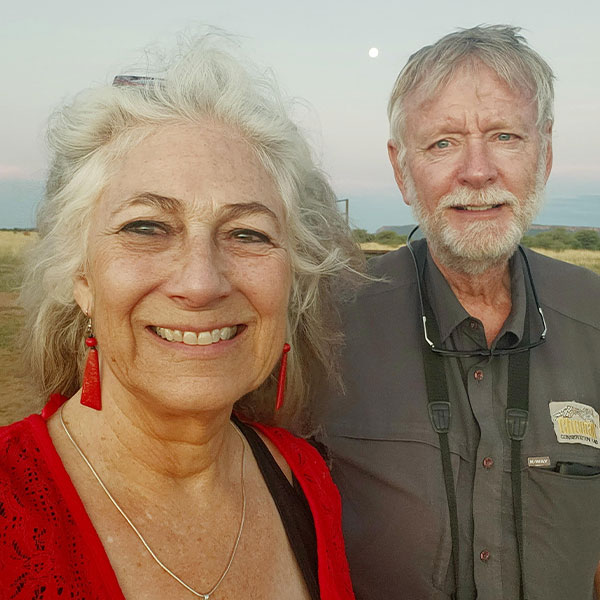
- by Dr. Laurie Marker December 20, 2017
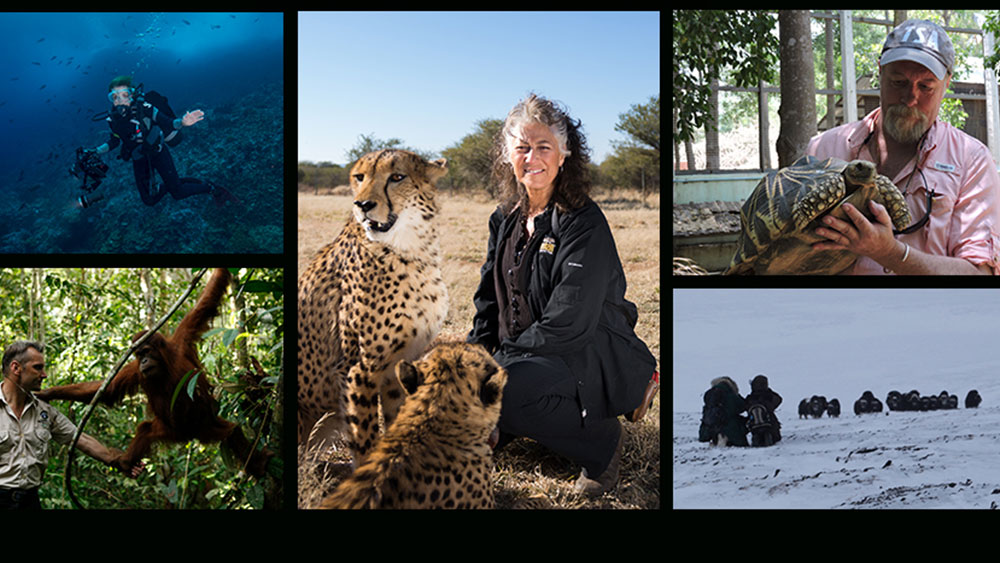
I am deeply honored to have been nominated for the 2018 Indianapolis Prize. This is the most prestigious of all awards given to conservation biologists and zoologists who dedicate their lives to the survival of an animal species. I have been nominated for this award four times before, and in 2010 and 2012, I was a finalist. But this most recent nomination is special to me. It means so much more because my name was put forward by one of my mentors and personal heroes, Dr. George Rabb, prominent zoologist, conservationist and former director of Chicago’s Brookfield Zoo. I knew George as Chair of the Species Survival Commission of the IUCN-World Conservation Union, a position he maintained from 1989 through 1996. Dr. Bruce Brewer, our CCF General Manager and my partner, worked with George at the zoo for 20 years before leaving for Namibia in 1998.
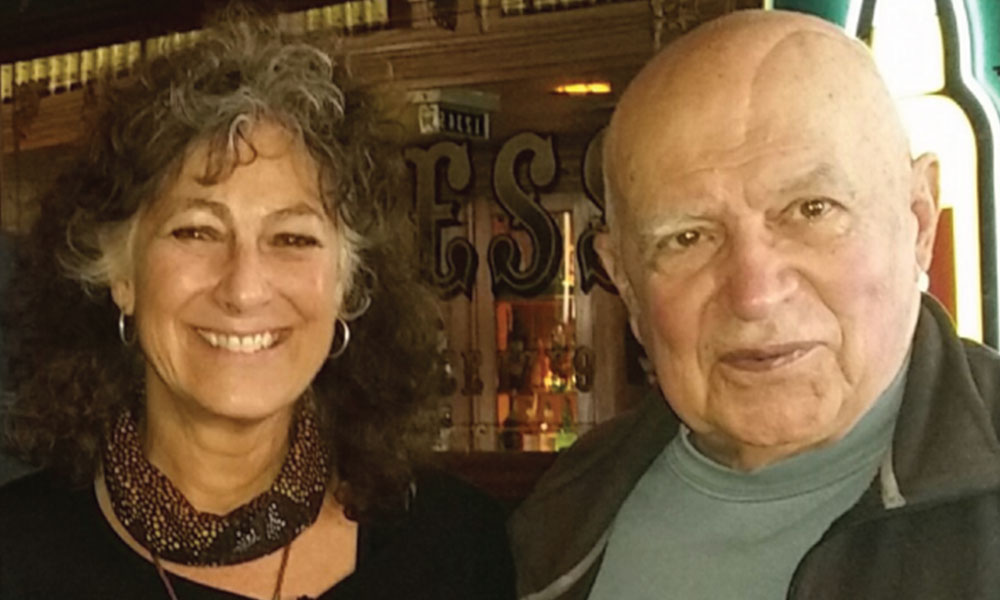
George was a champion for animals everywhere and an inspiration to anyone lucky enough to meet him. Above all, George was my friend. I say ‘was’ because he passed this summer after a sudden illness. George had relationships with conservation organizations all over the world and was considered a rock star in our community. Although exceptionally humble and painfully shy, he was a highly regarded spokesman on many wildlife conservation issues. He is credited for being a driving force in remaking zoos into modern conservation centers, and he supported my decision to throw caution to the wind and relocate to Namibia, leaving an executive director position at NOAHS Center at the National Zoo I worked so hard to attain.
When George submitted my nomination to the Indianapolis Prize Awards Committee in February, he was 87 years-old. To imagine that one of his last acts was this selfless and beautiful gesture is very touching. In one swoop, he recognized the sum of my career achievements, validated my choices and demonstrated his unwavering commitment to cheetah conservation.
George himself had so many career achievements. He joined the Brookfield Zoo in 1956 as curator of research. He went on to form the zoo’s Education Department and advocated the use of naturalistic exhibits designed to provide visitors with immersive experiences. He was an amphibian expert and credited with beginning the amphibian conservation movement. At Brookfield, his work led to the establishment of the zoo’s Center for the Science of Animal Care and Welfare and Center for Conservation Leadership. The Chicago Zoological Society’s Rabb Conservation Medal is named for him, and he won many of the top honors given to zoo professionals, including the 1997 Silver Medal of the Zoological Society of London and the 2008 Lifetime Achievement Award of the National Conference on Science, Policy and the Environment.
In his obituary in the Chicago Tribune, Stuart Strahl, George’s successor and president and CEO of the Chicago Zoological Society, remarked, “The collective whole of the people he affected and who worked with him and learned from him and went on to be zoo directors or amphibian biologist or educators, the collective whole is probably more than the sum of George. But individually there can never be another George Rabb.” So very true.
The winner of the Indianapolis Prize will not be announced until the fall of next year. Whatever the outcome, my only regret will be that George will not be here to witness it. He was truly an amazing man, someone who cared more about other living creatures than himself, and I feel so fortunate to have known him. To me, the real prize was George’s nomination.
Congratulations to all 32 nominees for the 2018 Indianapolis Prize. You are doing stellar work, and everyone on the list deserves this recognition!
Sri Suci Utami Atmoko, Ph.D., National University – Orangutan researcher and policy influencer for orangutan and forest conservation issues
Purnima Devi Barman, Aranyak — Environmentalist focused on efforts to conserve greater adjutant storks in India
Joel Berger, Ph.D., Wildlife Conservation Society; Colorado State University — Scientist leading projects on pronghorn antelope migration corridors, climate change on musk ox in the Alaskan Arctic, and saiga antelope conservation in Mongolia
P. Dee Boersma, Ph.D., University of Washington; Penguin Sentinels — Conservationist studying global warming’s impact on penguins
Christophe Alain Boesch, Ph.D., Max Planck Institute of Evolutionary Anthropology; Wild Chimpanzee Foundation — Primatologist dedicated to providing alternatives to bush meat and applying new technology to great ape conservation
Sheila A. Bolin, The Regal Swan Foundation, Inc. — Advocate for swans worldwide through conservation, research, veterinary medicine and education
Gerardo Ceballos, Ph.D., Institute of Ecology, National Autonomous University of Mexico —Conducted the first jaguar census in Mexico and developed successful conservation strategies for endangered mammals in North America, including the black-footed ferret
Colin Chapman, Ph.D., McGill University — Scientist who led chimpanzee field studies and established successful ecotourism sites for Uganda’s Kibale National Park
Lisa Dabek, Ph.D., Paupa New Guinea Tree Kangaroo Conservation Program; Woodland Park Zoo — Founder of the Tree Kangaroo Conservation Program
Scott Dowd, New England Aquarium, Project Piaba — Field biologist whose research on Amazon fisheries formed the basis for sound fisheries management, sustainability and benefits to rural communities
Sylvia Earle, Ph.D., Deep Ocean Exploration and Research; Mission Blue; SEAlliance — Oceanographer and author focused on researching ocean ecosystems, developing new exploration technologies and creating a global network of marine protected areas
Rick Hudson, Turtle Survival Alliance — Dedicated advocate for reptile conservation, including groundbreaking work with the Jamaican iguana
Rodney Jackson, Ph.D., Snow Leopard Conservancy — Conducted in-depth, radio-tracking studies of snow leopards since the 1980s and builds capacity with local communities in conserving the species
Harvey Locke, Harvey Locke Consulting — Photographer and writer recognized for his work in Canada’s national park creation and management and conservation of large landscapes
Deborah Martyr, Fauna & Flora International — Journalist and key player in establishing the first Tiger Protection and Conservation Units in Asia
William McLellan, University of North Carolina Wilmington — Cetacean necropsy expert who responds to whale and marine mortality events worldwide
David Mech, Ph.D., US Geological Survey; University of Minnesota — Leading authority on the wolf, supporting wolf recovery and ecological management in many countries throughout the world
Charudutt Mishra, Ph.D., Snow Leopard Trust — Conservation biologist working to protect threatened species and habitats throughout Central Asia, with a focus on the snow leopard
Russell Mittermeier, Ph.D., Conservation International — Visionary primatologist leading efforts to conserve many species, including saki monkeys and other neo-tropical primates
Anna Nekaris, Ph.D., Oxford Brookes University; Little Fireface Project — Director of the Little Fireface Project for gibbons, orangutans, macaques, and langurs
Peter Pratje, Ph.D., Frankfurt Zoological Society — Conservationist focused on protecting Sumatran orangutans
Lente Lidia Roode, Hoedspruit Endangered Species Centre — Founder of the Hoedspruit Endangered Species Centre, a nonprofit that provides a safe-haven for orphaned and sick animals
Carl Safina, Ph.D., The Safina Center — Brought ocean conservation into the environmental mainstream by using science, art and literature to inspire a “sea ethic
Joel Sartore, National Geographic Photo Ark — Photojournalist giving vanishing species and habitats a voice before they’re gone forever
Claudio Sillero, Ph.D., Ethiopian Wolf Conservation Program — Founder and executive director of the Ethiopian Wolf Conservation Programme for Africa’s rarest and most endangered carnivore
Ian Singleton, PhD., Sumatran Orangutan Conservation Programme; PanEco-YEL — Responsible for groundbreaking ecological field studies on Sumatran orangutans
Jigmet Takpa, Government of Jammu and Kashmir, India; Department of Wildlife Protection — Leading landscape-level conservation programs in Ladakh northern India, resulting in population recovery of snow leopard, Tibetan argali, gazelle and antelope, lynx, Pallas’ cat, Tibetan and black-necked crane
Adrian Treves, Ph.D., Nelson Institute for Environmental Studies; Carnivore Coexistence Lab — Founder of the Carnivore Coexistence Lab with research focusing on finding the balance between human need and wildlife conservation
Amanda Vincent, Ph.D., Project Seahorse — First person to study seahorses underwater
Rob Williams, Ph.D., Oceans Initiative — Ocean conservationist whose work convinced policymakers that a whale’s habitat is acoustic
Kerri Wolter, VulPro — Founder and CEO of VulPro; researches vulture disease and nutrition
Related Reading
-
December 4, 2024
Double Your Donation for the Cheetah -
June 15, 2024
Snake Aversion Training


